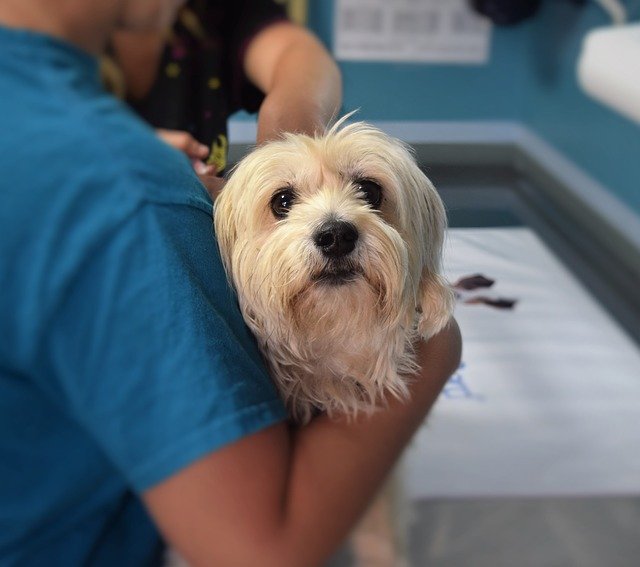The Canine Influenza Virus (CIV) and What You Need to Know About It!

Many of you have likely heard or read about the Canine Influenza Virus (also known as CIV), especially regarding the current outbreak of this contagious respiratory disease. Here at Fairfax Animal Hospital, we want to not only help keep our furry patients healthy and happy, but to also help you navigate the current recommendations regarding disease outbreak, prevention, and therapy. Here are some of the most common questions and answers regarding CIV and the current outbreak:
1) What is the Canine Influenza Virus, also known as CIV or “Dog Flu?”
CIV is a contagious upper respiratory virus that most commonly causes coughing, lethargy, decreased appetite, fever, and eye and/or nasal discharge. While most patients can fully recover from this illness, CIV can prove fatal in a small number of patients. Treatment for CIV is focused on supportive care and can range from outpatient therapy with oral medications to intensive hospitalized care depending on the severity of the infection.
2) How does CIV spread and how is it diagnosed?
CIV is spread in a similar fashion to the human cold—through particles released into the air via coughing or sneezing, through nose-to-nose contact, or through mutual contact of an object (including a human!). An infected patient can intermittently shed CIV for up to 24 days beyond initial infection. The virus can be diagnosed by specialized testing of samples from secretions from the nasal passage, as well as blood testing in certain situations.
3) What is the difference between H3N8 and H3N2?
These descriptors represent the two different strains of CIV involved in recent outbreaks. Both strains cause similar symptoms in canine patients, but typically one strain or the other will be involved in a particular outbreak in one geographic location.
4) Is my dog at risk of contracting CIV?
While any dog could potentially be infected with CIV, the patients with the highest risk would be those who interact very regularly with other dogs, or spend time in areas heavily populated with other dogs. This would include patients who go to the dog park, board in kennels/hospitals, go to the groomer, or attend canine show/sporting events. Our veterinarians at Fairfax Animal Hospital are happy to discuss individual patient risk at any time!
5) What can I do to prevent my dog from being affected by CIV?
Fortunately, there is a vaccination available to help prevent illness from CIV. The current vaccination available provides protection against both current active strains of CIV. This series involves an initial vaccination followed by a vaccine booster 2-4 weeks later. The vaccine is then boostered on an annual basis.
In addition to vaccination, it is important to contact your veterinarian if your pet demonstrates any signs of potential respiratory issues. It is also recommended to avoid any contact with other dogs that are known to be ill or display any signs of respiratory illness (coughing, sneezing, lethargy, etc).
6) Which areas are included in the outbreak?
CIV has been confirmed in 30 states since it was first isolated in 2004. The most recent outbreak involves cases in the states of Florida, Georgia, South Carolina, North Carolina, and Southern Virginia. There are no confirmed cases of CIV in Northern Virginia at this time.
7) My dog has previously received the CIV vaccine. Does he or she need to receive it again?
Depending on your pet’s lifestyle and level of exposure to other dogs, it may be recommended that the Influenza vaccine be continued on an annual basis. If your dog has not previously received an Influenza vaccination including BOTH the H3N2 and H3N8 strains, it may be recommended that the patient be treated as an unvaccinated patient, as there is no proof that vaccination against one strain prevents infection from a different strain.
8) Can my cat or family member be infected with CIV?
There is currently no evidence that CIV can infect human beings, and there have been no reported human cases of CIV. It is possible for CIV to infect cats, however, and would cause similar symptoms as seen in the canine patient. There is currently no vaccination for cats against CIV, and therefore it is strongly recommended that you contact your veterinarian should you observe any signs of respiratory disease in your feline pets.
9) What can I do if I have further questions, or have concerns regarding my dog’s risk of contracting CIV?
Please don’t hesitate to contact us at 703-820-2557 or [email protected] with questions regarding CIV, to discuss evaluation of your pet, to help determine whether or not your pet may be a candidate for the Canine Influenza vaccine or to make an appointment.
